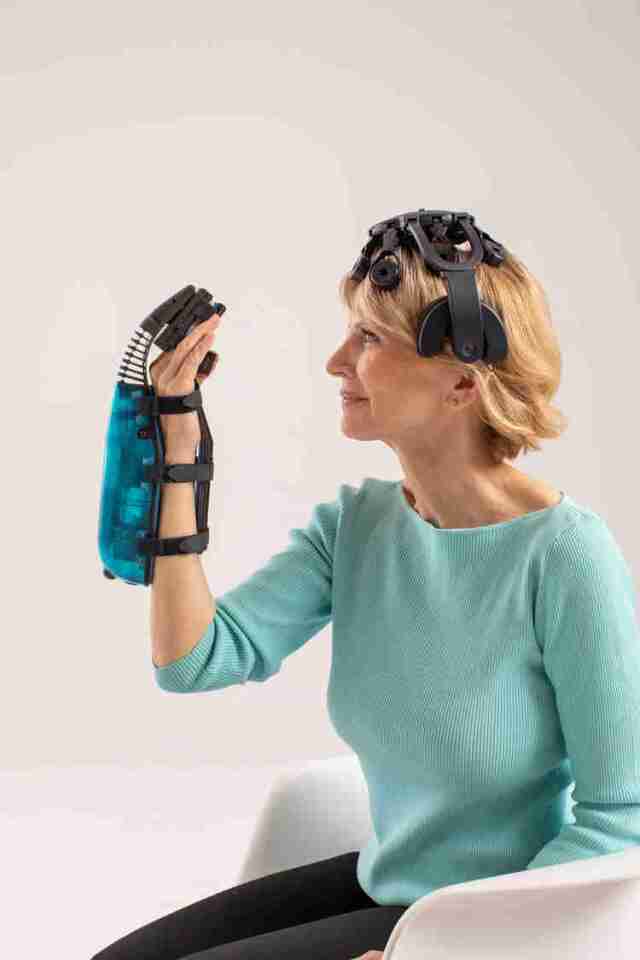A novel device designed to help stroke patients recover wrist and hand function has been approved by the US Food and Drug Administration (FDA). Called IpsiHand, the system is the first brain-computer interface (BCI) device to ever receive FDA market approval.
The IpsiHand device consists of two separate parts – a wireless exoskeleton that is positioned over the wrist, and a small headpiece that records brain activity using non-invasive electroencephalography (EEG) electrodes. The system is based on a discovery made by Eric Leuthardt and colleagues at the Washington University School of Medicine over a decade ago.
It is well known that each side of the brain controls movement on the opposite side of the body, so if a stroke damages motor function on the right side of the brain movement on a person’s left side will be affected.
Leuthardt and his team’s discovery back in 2008 revealed signals for body movement can be detected on the same side of the brain, but these signals are futile when the opposite side of the brain, which is actually responsible for executing the movement, is damaged. This specific brain activity was called ipsilateral brain signals.
The idea behind the novel BCI device was to find a way to detect those ipsilateral signals and use them to control an electronic hand brace. In 2017 the researchers demonstrated how patients using the device for 12 weeks, in the context of rehabilitation, significantly improved some degree of motor function by essentially retraining their brain to communicate with their hand.
“Generally, any motor impairments experienced by a patient six months after a stroke have been considered permanent,” says Leuthardt, who co-founded a company called Neurolutions back in 2007 to commercialize this technology. “What we’ve found with this device is that many patients can get a meaningful improvement in recovery of upper extremity movement when we wouldn’t expect them to get any. That’s not really true for any of the current therapies for stroke aimed at restoring function after the initial recovery period.”

Neurolutions
The FDA’s market authorization of the IpsiHand device marks the first time a brain-computer interface device of this kind has been approved for clinical use in the United States. The approval was primarily based on clinical trial data showing significant motor function improvements when the device was used for 12 weeks, for around five times per week for at least 10 minutes each day.
The IpsiHand is currently not available to patients but Neurolutions is beginning commercialization of the device and aim to make it clinically accessible later in 2021.
“It is exciting to say that this is the first FDA-approved brain-computer interface for rehabilitation,” Leuthardt says. “People have been trying for a long time to convert BCI from an experimental technology into something that will truly help patients. With this, we’ve shown that BCI is finally ready for prime time. I sincerely hope there are many more such devices to follow.”
Sources: FDA, Washington University School of Medicine in St. Louis
"interface" - Google News
April 29, 2021 at 10:46AM
https://ift.tt/3vx8Loz
First ever FDA-approved brain-computer interface targets stroke rehab - New Atlas
"interface" - Google News
https://ift.tt/2z6joXy
https://ift.tt/2KUD1V2
Bagikan Berita Ini














0 Response to "First ever FDA-approved brain-computer interface targets stroke rehab - New Atlas"
Post a Comment